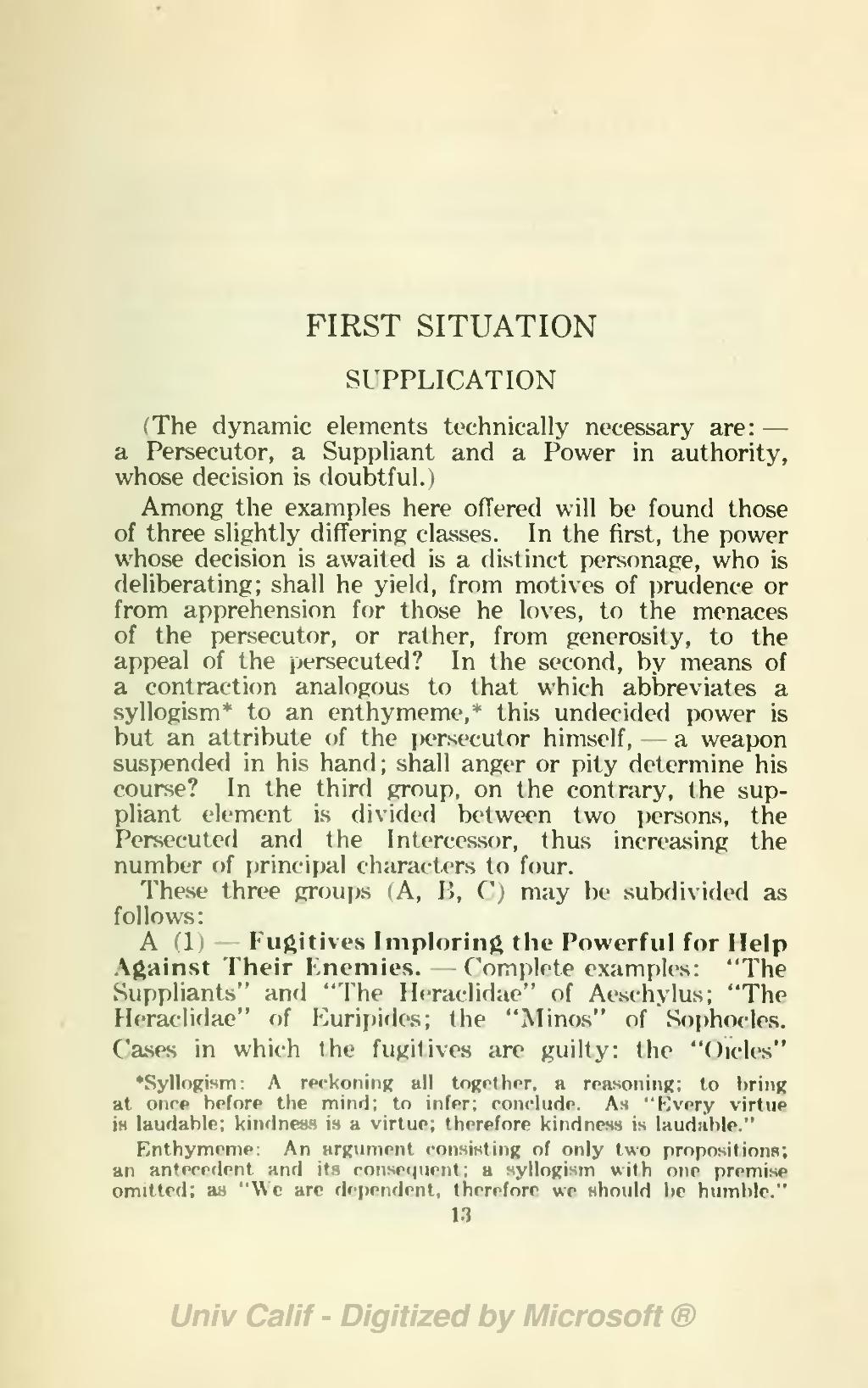FIRST SITUATION
SUPPLICATION
(The dynamic elements technically necessary are: — a Persecutor, a Suppliant and a Power in authority, whose decision is doubtful.)
Among the examples here offered will be found those of three slightly differing classes. In the first, the power whose decision is awaited is a distinct personage, who is deliberating; shall he yield, from motives of prudence or from apprehension for those he loves, to the menaces of the persecutor, or rather, from generosity, to the appeal of the persecuted? In the second, by means of a contraction analogous to that which abbreviates a syllogism[1] to an enthymeme,[2] this undecided power is but an attribute of the persecutor himself,—a weapon suspended in his hand; shall anger or pity determine his course? In the third group, on the contrary, the suppliant element is divided between two persons, the Persecuted and the Intercessor, thus increasing the number of principal characters to four.
These three groups (A, B, C) may be subdivided as follows:
A (1)—Fugitives Imploring the Powerful for Help Against Their Enemies.—Complete examples: "The Suppliants" and "The Heraclidae" of Aeschylus; "The Heraclidae" of Euripides; the "Minos" of Sophocles. Cases in which the fugitives are guilty: the "Oicles"
- ↑ Syllogism: A reckoning all together, a reasoning; to bring at once before the mind; to infer; conclude. As "Every virtue is laudable; kindness is a virtue; therefore kindness is laudable."
- ↑ Enthymeme: An argument consisting of only two propositions; an antecedent and its consequent; a syllogism with one premise omitted; as "We are dependent, therefore we should be humble."
13
